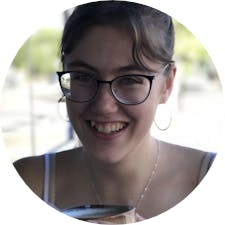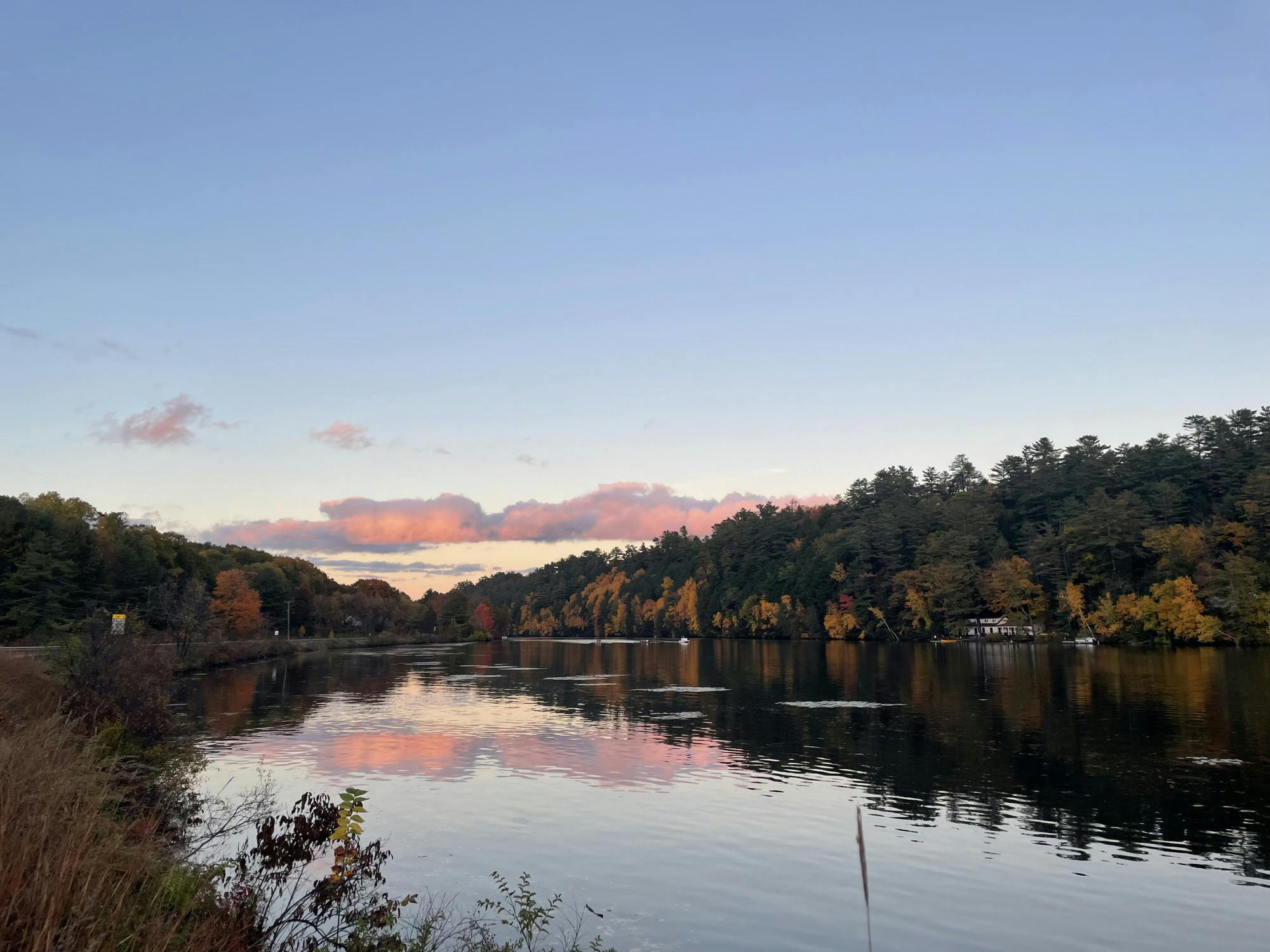My path at Dartmouth has been unsteady. Since I started during the pandemic, it took longer for me to discover my eventual majors, English and theater, and find my place within those departments. During my first year, my professors on Zoom felt as far away as they could get. My junior year, I finally felt like everything was falling into place. I was pushing myself to connect with professors and dig deeper into my interests. My English professor, Monika Otter, became one of my biggest inspirations, helping me build confidence and find my areas of interest within the English department. But when she died in May, I didn’t know what to do anymore.
To lose a professor and advisor is an interesting feeling. I can’t grieve in the way I would for a family member or friend. I feel like I don’t have the right to write about her — in the grander scheme of things, I barely knew her. Yet, she creeps into my mind everywhere I go. After all, she shaped my way of thinking and my passion for literature more than I ever expected.
My love for Scandinavian folklore was originally sparked by my mother’s stories of her Danish grandmother. With these stories in mind, I signed up for Professor Otter’s ENGL 10, “Old English and the Scandinavian Epic Saga” during my junior fall. In the windowless classroom on the third floor of Berry Library, Professor Otter read the beginning of “Beowulf” in Old English. Each of us proceeded to go around the table and read one section, stumbling over the consonants of the foreign and largely forgotten language. Over the course of the term, the material and Professor Otter’s office hours sparked excitement within me.
I first went to Professor Otter’s office hours to discuss translations. Eventually, these meetings became a time to talk about our shared interests in language, music and singing. Over the course of the term, Professor Otter and I had more conversations about modern Danish and its roots in Old Norse. She was from Friedrichshafen, Germany, so we talked about the German language and culture. When she shared that she was learning Welsh, we talked about a research paper I wrote about Welsh language restoration during my freshman year. In my previous classes, I had never felt comfortable talking to a professor about material that wasn’t directly related to a class question. I had always been afraid of wasting professors’ time. But something shifted as I got to know Professor Otter. Though her office hours took place on Zoom as the result of her illness, I found them both comforting and intellectually engaging, and I always looked forward to them.
Professor Otter fueled my excitement for Old English and Old Norse, even though these topics weren’t her specialty. She challenged me, and I became a better writer and academic thinker because of it. I tried to follow along when she talked about her in-progress paper on “moresche,” a 16th-century Italian song-form. She talked at length about one text that featured a miniature man. Her excitement to present a paper for the first time since she had become sick has stuck with me.
At the end of the fall term, Professor Otter and I discussed my plan for my final paper, which was about death in Old Norse sagas. She encouraged me to look at the “Poetic Edda” — a compilation of Scandinavian folklore and mythology — so I checked out a translation.
When I learned that Professor Otter died on May 5, the books from her class were still sitting on my shelf. The “Poetic Edda” was stacked on top of “Introduction to Old English” on the corner. Somehow, I had forgotten to return them as I moved off and back onto campus. After May 5, I noticed them every time I was in my room. I didn’t know how to feel. Suddenly, the books felt like ties to her class. If I still had them, I wouldn’t have to face the stark reality of Professor Otter’s passing.
I still have emails addressed to Professor Otter that sit in my drafts. I wrote one of these over spring break after visiting an exhibit on the history of Scandinavia at the National Museum of Denmark. The exhibit was filled with sculptures and artifacts that reminded me of discussions in Professor Otter’s class on history versus myth in Scandinavian sagas. In the fall, Professor Otter had suggested a phallic interpretation of swords in these sagas that, at the time, I had thought was absurd. But there I stood in the museum, surrounded by sculptures and Viking art, laughing with my friends about how maybe Professor Otter was onto something. I didn’t bring up the phallic sword conversation in the email because it felt too inappropriate — but it didn’t matter, I didn’t send the email anyway.
Thinking about her so often makes me feel selfish at times. When I’ve talked to other professors since her death, they have mentioned details about her that I didn’t know, and I am reminded that I knew her for just a sliver of time in her life. It’s a feeling of grief that just doesn’t make sense; I don’t know how to feel. But, I know that I will always remember her in Baroque music, medieval art and literature, my replica necklace from the National Museum of Denmark, Renaissance and medieval music and learning languages.
I recently bought a copy of the “Poetic Edda,” knowing I’ll have to return my library copy this fall. It will have been a year since I checked it out, but I can’t imagine letting it go. Returning my copy will feel like an ending of sorts. It feels almost like graduation came too soon, but with nothing to show for the ending. Sometimes I think that it’s just me that left, and Professor Otter is still in Novack eating lunch after class.
It hurts knowing that I’m not done with Dartmouth, but Professor Otter won’t be here for my last year. We had talked about so many plans for the future — an independent study, a thesis, class in the spring before I left. I had imagined what the next year would be like with her getting healthier. I still don’t know exactly how to talk about it, but I know that I think of her in the books on my shelf. I know that she taught me more in a year than I could have imagined. I have a burning desire to go to office hours and send my drafted emails, even though I’m afraid. I want to gaze at medieval art in museums and learn all the languages I’ve wanted to learn. More than anything, I want to be grateful for the time I have with the people who inspire me.

Elle Muller is a ’24 from Tucson, Arizona. She is double majoring in English and creative writing & theatre. At The Dartmouth, she served as the news executive editor for the 180th Directorate. Before that, she wrote and edited for Arts. In addition to writing, Elle is involved with dance and theatre at Dartmouth.




